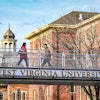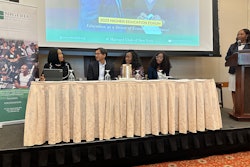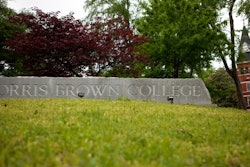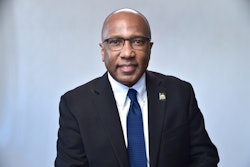SAO PAULO, Brazil
U.S. Education Secretary Margaret Spellings looks more like a college recruiter this week, traveling through South America with American university leaders to woo back international students spooked by lengthy visa delays linked to post-9/11 security.
“American higher education is open for business to students from our neighbors,” Spellings said in Santiago, Chile, before meeting Tuesday with Chilean students and university rectors. Her next stop on Wednesday is Sao Paulo, the continent’s largest city.
The number of foreign students enrolling in American universities is rebounding following a drop due to extra visa security precautions after the Sept. 11 attacks. But the number of visas are granted to students seeking to study for a year or more is still less than before the terrorist attacks.
Only 5,881 F-1 student visas were handed out in Brazil in 2006, the latest year for which figures are available, down from 12,325 in 2001, according to the U.S. Embassy in Brasilia.
And competition for students is growing fast from nations like Australia, Canada and the United Kingdom. Even South Africa is in the race to attract South America’s best and brightest.
American universities depend on foreign students for teaching and research help, and policymakers consider them essential so that future foreign leaders will be familiar with the United States. It also has an economic effect: Foreign students provide of billions of dollars annually to the U.S. economy.
“If they got rid of the visa difficulties, I think most Brazilian students would choose the United States,” said Leticia Amorim, a 22-year-old business administration major who will head to the United States soon to perfect her English and learn Spanish.
But she says many of her friends contemplating study abroad are still concerned about U.S. visa requirements, and some are worried that they might not be well-received. She said the U.S. visa process is still viewed as cumbersome and is the main reason “why people are going to other countries.”
Education experts credit American officials for speeding visa approval in recent years, and Spellings insisted that the trend of falling enrollment has been reversed.
“We have started to regain ground that had been lost after Sept. 11,” she said in Chile.
But Australia, Canada, France and the United Kingdom have launched intense marketing campaigns to attract students from Latin America, where improving economic conditions have swelled college enrollments and demand for study abroad.
Renee Zicman, who heads international cooperation efforts at Sao Paulo’s Catholic University, said Australia doubled its share of Brazilian students in just two or three years. An annual event to attract students to South African universities now draws heavy interest.
“We’ve just had a boom in the market, and these countries have calendars of events seeking out students in Brazil,” she said. While the United States is also marketing, she said a bigger push is needed.
The U.S. Education Department said the number of student and exchange program visas hit an all-time high of 591,050 in 2006. But the number of F-1 student visas for study in the United States for a year or more was 273,870 in 2006, below the high of 293,357 in 2001.
Spellings’ made a similar trip to Asia in November, and Undersecretary of State for Public Diplomacy Karen Hughes made the same rounds in India in March. Accompanying Spellings on her tour to Chile and Brazil through Friday are university presidents and chancellors from California, Florida, Iowa, Louisiana, Maryland, Missouri and Oklahoma.
“It’s true that the UK, Canada and Australia are aggressively marketing and increasing their percentages of international students, but they don’t have the capacity to take the millions the United States can take,” said Peggy Blumenthal, executive vice president of the New York-based Institute of International Education.
She added: “The problem is getting the word out to the people that the situation has changed, and making them believe it.”
– Associated Press
There are currently 0 comments on this story.
Click here to post a comment
© Copyright 2005 by DiverseEducation.com





















